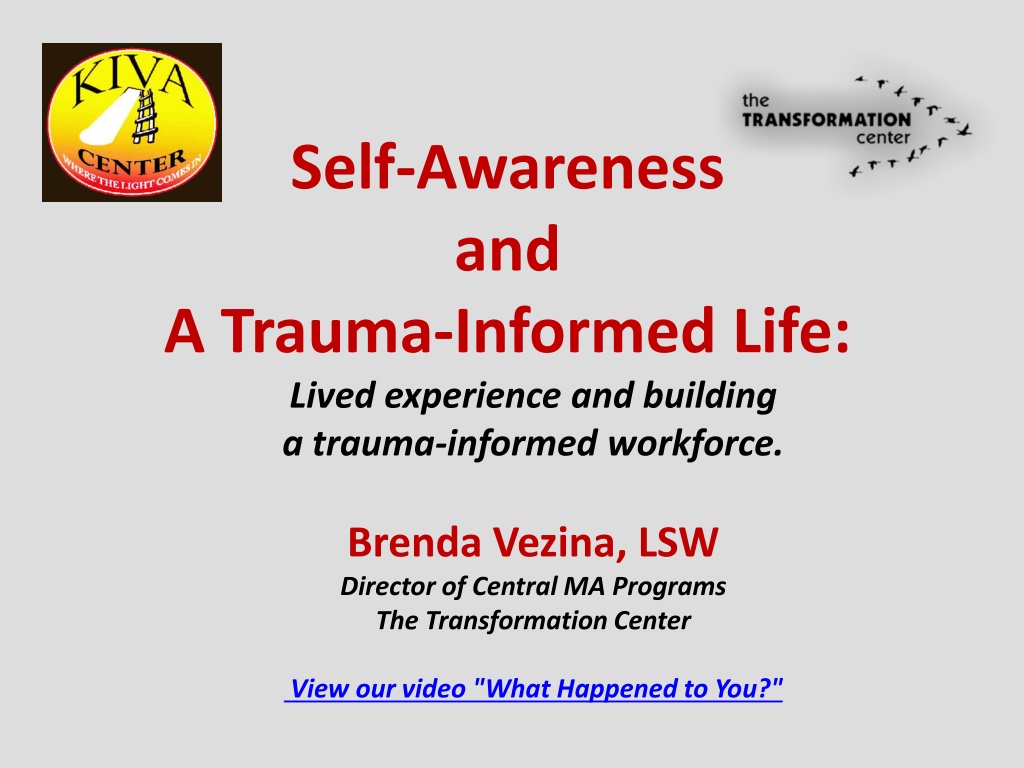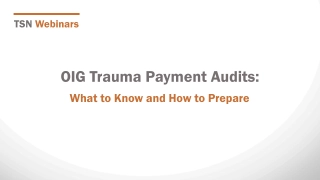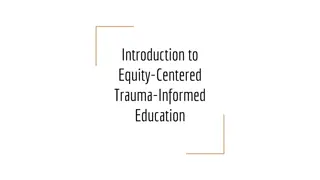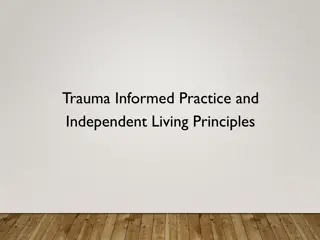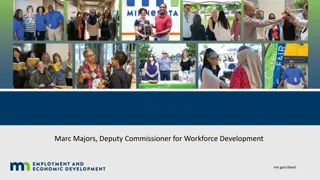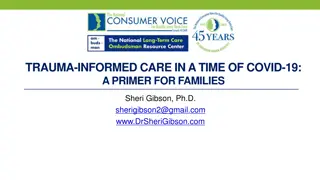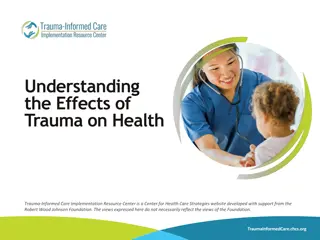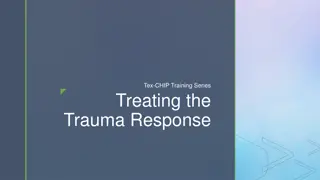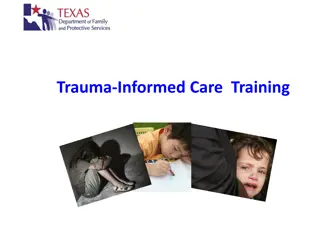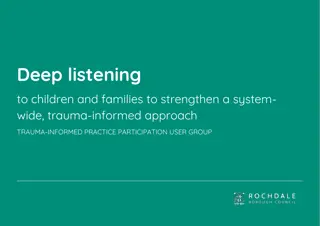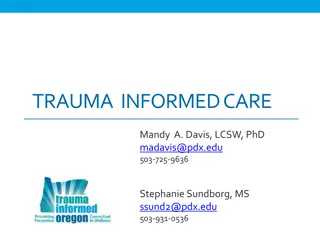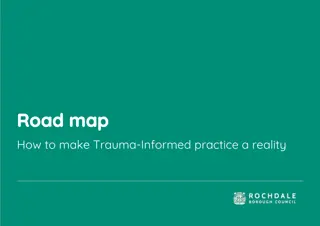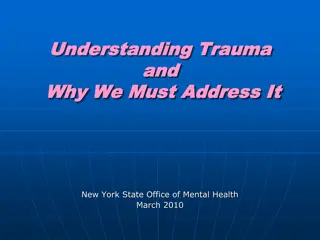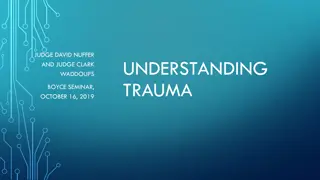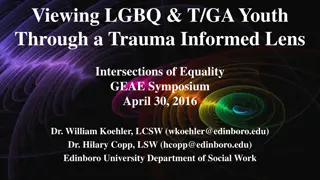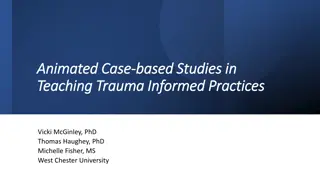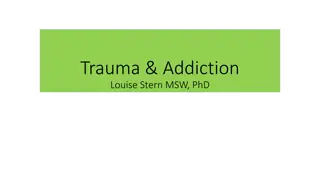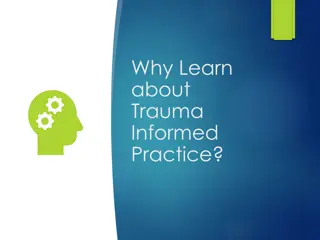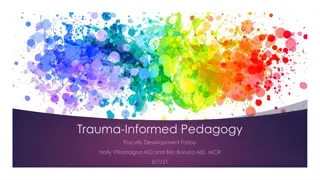Empowering Workforce Through Trauma-Informed Approach
Explore the journey of self-awareness and trauma-informed living through personal narratives and professional insights. Discover the importance of shifting from "What's wrong with you?" to "What Happened to You?" to create meaningful change. Learn about strategies for building a trauma-informed workforce and empowering individuals to be agents of support and system change.
Download Presentation

Please find below an Image/Link to download the presentation.
The content on the website is provided AS IS for your information and personal use only. It may not be sold, licensed, or shared on other websites without obtaining consent from the author. Download presentation by click this link. If you encounter any issues during the download, it is possible that the publisher has removed the file from their server.
E N D
Presentation Transcript
Self-Awareness and A Trauma-Informed Life: Lived experience and building a trauma-informed workforce. Brenda Vezina, LSW Director of Central MA Programs The Transformation Center View our video "What Happened to You?"
I thought there would be more help coming for me. And when there wasn t any, I learned to be that help for myself.
Blind faith in anything will get you killed. --Bruce Springsteen
I want to be in the meeting. I want to be a part of the change from What s wrong with you? to What Happened to You?
Asking What Happened to You? was the beginning. Then we began changing everything.
CMRLC strives to create a Peer workforce that sets the standard for effective support and system change. Workforce development focuses on: Building on existing strengths and talents Continuous training opportunities Supervision through mentoring Providing opportunities for community leadership
Building an Empowered Workforce You need to do this. These are the things we need to accomplish. This is how it should be done. How can we get this done? What resources do you need from us? How can we support your goals?
This training and support model leads to the confidence of competence. CMRLC s Peer Workforce has ESP: --Lived Experience and Expertise --Strength through Support --Passion for change leading to a Trauma-Informed Nation, one conversation at a time.
The main thing that I learned was I m not what happened to me. I m still with purity and innocence. No one can take that away from me. --Carlos Santana
